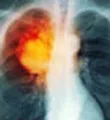WebMD Health News Reviewed byLouise Chang, MD

Dec. 6, 2012 -- Widely used UV nail lamps are highly unlikely to cause skin cancer, even if used weekly for 250 years, a new study suggests.
The finding contradicts the feeling of many dermatologists that the devices are as harmful as tanning beds. That feeling is largely based on a 2009 report of skin cancer on the hands of two women with no other obvious skin-cancer risks.But the new study actually measured radiation from typical nail lamps. The measurements then were used to calculate nail lamps' "carcinogenic effectiveness" by the same method used to establish the safety of medical devices.
"Nail lamps are safe for over 250 years of weekly manicures, and even then there would be a low risk of skin cancer," says study researcher Alina Markova, MD, of Massachusetts General Hospital. "Not 'no risk,' but 'low risk.'"
Emory University dermatologist Jamie MacKelfresh, MD, praises the Markova study for its scientific approach.
"This makes me rethink the issue of nail lamp safety," MacKelfresh says. "I'm not ready to say these devices are safe -- we dermatologists want people to avoid UV radiation as much as possible -- but this seems to be low risk, especially if used infrequently."
What Your Nails Say About Your Health
Nail Lamps' UV RadiationThe study looked at three models of UV nail lamps similar to about 90% of the hundreds of such products available for salon and home use:
Device A, with four 9-watt UV fluorescent bulbs. Device B, with one 9-watt UV fluorescent bulb. Device C, with six 1-watt LED lights.Markova and colleague Martin A. Weinstock, MD, professor of dermatology at Brown University, measured the radiation from a 10-minute session under the lamps, which is more than people typically get in a nail salon.
They compared the cancer-causing potential of each device to a course of treatment with the FDA-approved UV phototherapy devices commonly used by dermatologists. These treatments carry a low cancer risk.
"Over 13,000 Device A or B and more than 40,000 Device C sessions lasting for 10 minutes would be required to be received at the nail salon to equal the UV dose received during one [phototherapy] course," Markova and Weinstock calculate.
Gel nails, which usually must be set under a UV nail lamp, require three 3-minute exposures per salon visit. That's much longer than the typical time normal nail polish takes to dry under the lamps.
In the 2009 report linking two women's skin cancers to nail lamps, researchers calculated that nail lamps expose people to as much radiation as tanning beds. But Markova says that study used the wrong method to calculate actual radiation exposure from the lamps.
She also notes that a 2010 industry study defending nail lamps used "incorrect" methods.
MacKelfresh says she's "impressed by the science" behind the Markova study.
"This at least opens the door to talking about the level of risk these units give to a person," she says. "It seems to put some science behind the claim that the dose of UV radiation you are receiving is quite low. But I'd like to see more research down the line."
The Markova study appears in an advance online publication by the Journal of Investigative Dermatology.
View Article Sources
SOURCES:
Markova, A. and Weinstock, M.A. Journal of Investigative Dermatology, published online Dec. 6, 2012.
Jamie MacKelfresh, MD, assistant professor of dermatology, Winship Cancer Center, Emory University, Atlanta.
Alina Markova, MD, resident, Massachusetts General Hospital, Boston.
MacFarlane, D.F. and Alonso, C.A. Archives of Dermatology, April 2009.
© 2012 WebMD, LLC. All rights reserved. #url_reference {display: none};#url_reference { display: block; line-height: 150%; margin-bottom: 10px; }#logo_rdr img { visibility: visible; }.titleBar_rdr .titleBarMiddle_fmt { padding-top: 1.5em !important;} Top Picks 15 Cancer Symptoms Women Ignore Sleep Problems and Cancer Cancer: Should You See a Specialist? 8 Ways to Lower Your Cancer Risk Chemotherapy Side Effects See What Skin Cancer Looks Like Cancer Health Center Cancer Health Center Bladder Cancer Brain Cancer Breast Cancer Cervical Cancer Colorectal Cancer Lung Cancer Melanoma Non-Hodgkin's Lymphoma Ovarian Cancer Pancreatic Cancer Prostate Cancer See what others are asking aboutVisit WebMD Answers
Related To Cancer Acute Lymphoblastic Leukemia Cancer Clinical Trials Cancer Reference Childhood Leukemia Chronic Myelogenous Leukemia Kidney Cancer Leukemia Living Healthy Malignant Glioma Non-Melanoma Skin Cancer Palliative Care Questions and Answers Uterine (Endometrial) Cancer Today in Cancer Blog How to Build a Support Team
Blog How to Build a Support Team  SLIDESHOW Eating These Cancer- Fighting Foods?
SLIDESHOW Eating These Cancer- Fighting Foods?  SLIDESHOW See What Skin Cancer Looks Like
SLIDESHOW See What Skin Cancer Looks Like  SLIDESHOW 13 Best Quit-Smoking Tips Ever
SLIDESHOW 13 Best Quit-Smoking Tips Ever  Blog 'I'll Be Bald Or Fat But Not Both'
Blog 'I'll Be Bald Or Fat But Not Both'  HEALTH CHECK What Is Your Cancer Risk?
HEALTH CHECK What Is Your Cancer Risk?  Video Colorectal Cancer Treatment Advances
Video Colorectal Cancer Treatment Advances  SLIDESHOW Breast Cancer: Symptoms, Treatment
SLIDESHOW Breast Cancer: Symptoms, Treatment  SLIDESHOW All About Prostate Cancer
SLIDESHOW All About Prostate Cancer  SLIDESHOW A Visual Guide to Lung Cancer
SLIDESHOW A Visual Guide to Lung Cancer  SLIDESHOW Ovarian Cancer Explained
SLIDESHOW Ovarian Cancer Explained  VIDEO Life After a Brain Tumor Subscribe to WebMD Newsletters WebMD Daily Women's Health Men's Health Weight Loss Wisdom I have read and agree to WebMD's Privacy Policy. Submit Sign up for more topics! WebMD Special Sections Coping With Chronic Myelogenous Leukemia Stem Cell Transplants for Blood Cancers Understanding Cancer and Bone Metastasis Nutrition to Help You Fight Cancer Health Solutions From Our Sponsors Vaccine Questions? Low Testosterone? Bipolar Disorder Facts Birth Control for Moms Blood Sugar Control Bent Fingers? Diagnosed With Low T? Fibromyalgia & Exercise Depression & Adults Child with Diabetes? Vaccines for All Ages Knee Pain Relief Itchy, Scaly Skin? Hearing Aid Alternative Relapsing MS Help In-depth coverage: Psoriasis Treatment on Target?|Healthy Mouth Help|RA Assessment|Living Healthy Guide|Family & Pregnancy Toolbox|Check Your Heartburn Symptoms Find us on:URAC: Accredited Health Web Site
VIDEO Life After a Brain Tumor Subscribe to WebMD Newsletters WebMD Daily Women's Health Men's Health Weight Loss Wisdom I have read and agree to WebMD's Privacy Policy. Submit Sign up for more topics! WebMD Special Sections Coping With Chronic Myelogenous Leukemia Stem Cell Transplants for Blood Cancers Understanding Cancer and Bone Metastasis Nutrition to Help You Fight Cancer Health Solutions From Our Sponsors Vaccine Questions? Low Testosterone? Bipolar Disorder Facts Birth Control for Moms Blood Sugar Control Bent Fingers? Diagnosed With Low T? Fibromyalgia & Exercise Depression & Adults Child with Diabetes? Vaccines for All Ages Knee Pain Relief Itchy, Scaly Skin? Hearing Aid Alternative Relapsing MS Help In-depth coverage: Psoriasis Treatment on Target?|Healthy Mouth Help|RA Assessment|Living Healthy Guide|Family & Pregnancy Toolbox|Check Your Heartburn Symptoms Find us on:URAC: Accredited Health Web Site©2005-2012 WebMD, LLC. All rights reserved.
WebMD does not provide medical advice, diagnosis or treatment. See additional information.
View the Original article




0 comments:
Post a Comment